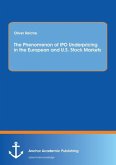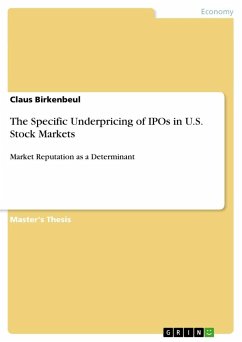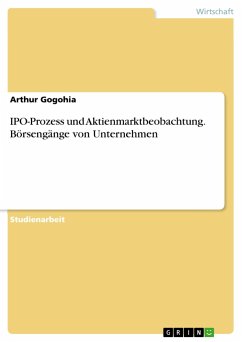Master's Thesis from the year 2013 in the subject Business economics - Banking, Stock Exchanges, Insurance, Accounting, grade: 2.3, University of Duisburg-Essen, course: Energy & Finance, language: English, abstract: The Initial Public Offering (IPO) which marks one the most important events of acompany basically aims to generate maximum proceeds by selling company's sharesto investors. Nevertheless, the shares they sell often seem to be underpriced, insofarthat the price significantly soars on the first trading day. Consequently, the companygenerates fewer proceeds and, hence "leaves money on the table."Since the very first detection of this phenomenon in the United States in 1969, severalsubsequent studies documented the existence of worldwide IPO underpricing nowadays.Considering that underpricing is costly for the company, a question ariseswhy, therefore, despite the fact that the companies "leave money on the table", theydo not try to avoid this by setting the issuing price on the very high?One of the most striking features of this question is that it had inspired many researcherswho tried to explain in various models why IPOs are generally underpriced.Besides, a lot of theoretical explanations concerning this phenomenon havebeen given by now; however, no common sense has been so far developed.[...]
Hinweis: Dieser Artikel kann nur an eine deutsche Lieferadresse ausgeliefert werden.
Hinweis: Dieser Artikel kann nur an eine deutsche Lieferadresse ausgeliefert werden.








